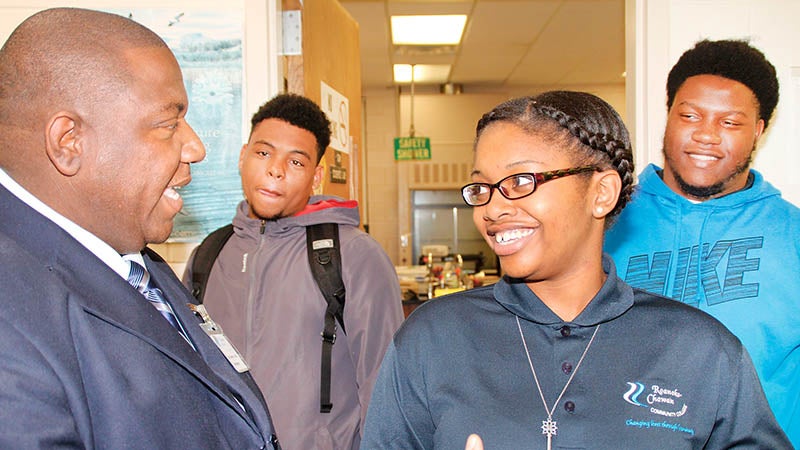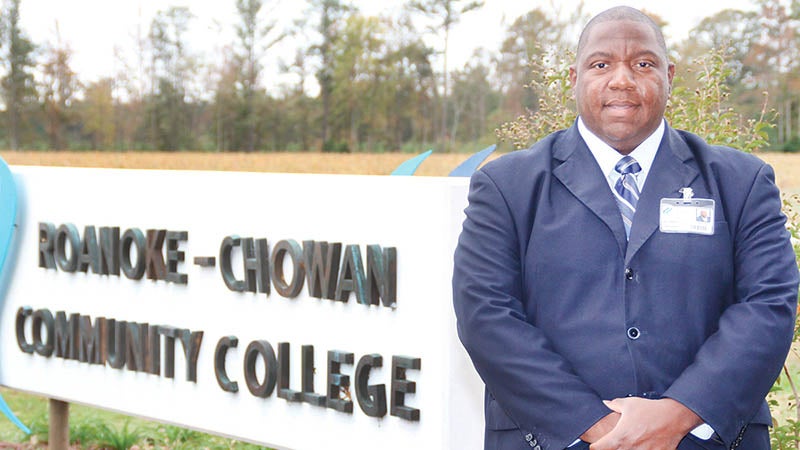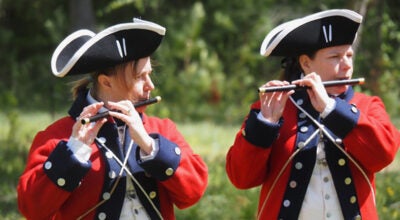Meeting its needs
Published 9:48 am Monday, November 7, 2016
UNION – Jimmy Tate believes in vision.
It’s foresight such as that which is leading the recently appointed eighth president of Roanoke Chowan Community College in his mission to re-brand his institution and make it fit not just the needs of the school and its students, but also of the community.
“What I think I bring is an understanding of how to work with the internal and external stake-holders of the college,” Tate stated, seated in the wood-paneled President’s Office located within the Jernigan Building. “I also bring a passion for wanting the college to get to the next level.”
Tate, a native of Pender County and former Vice-President for College Advancement and Strategic Initiatives at James Sprunt Community College in Kenansville, brings nearly 30 years of community college and university experience to RCCC.
At James Sprunt, Tate was also responsible for the college’s Human Resources Department, Internal and External Professional Leadership Development Programs, Campus Safety and Security, the Male Mentoring and Achievement Program, Research and Planning, and Marketing and Public Relations.
In addition to his Doctorate of Education, Tate holds undergraduate degrees from UNC-Wilmington and did further study at the University of Iowa, Fayetteville State, and Shaw Universities.
“Having been a community college student myself makes a big difference,” Tate emphasized. “I understand the importance of being a student and having the resources at the college to help you. That’s why I want to get the faculty and staff engaged with the students.”
Tate recently re-structured and re-organized much of the administration at RCCC upon taking office this past summer. The number of Deans within the school is down from XX to XX. On the curriculum side, he is re-vamping the college’s evening and weekend classes.
“I want to make sure we have counselors on board,” he continued. “I want to make sure financial aid is available to help students. In Hertford, Bertie, and Northampton counties a large population of our students is working adults; so, when you’ve got students such as that, you have to offer classes differently. Teachers have to come out of their comfort zones and not look at teaching between the traditional hours of 9-to 2 o’clock.”
A recent change with RCCC’s fall semester is what Tate calls a “soft close”, or early staff dismissal at 12-noon on Fridays.
“You don’t have too many people who come to the campus on a Friday afternoon to enroll in class,” he says. “You don’t have too many coming in on Fridays who want to do financial aid. What we’re trying to get them to do is work their traditional 40-hour week, but now our business and admissions offices will be open the other days until seven o’clock at night. With our class schedule, classes will go on longer at night. This will give working adults a greater opportunity to come to class.”
Tate feels this change will help the college to greater reach the traditional community college population.
“This plan will work for the working adult as well as our traditional students,” the president claims. “We’re merely doing something differently without requiring any more money and using our same resources to do it. People want to go into college nowadays, get a quality education, and graduate to become gainfully employed. We’re trying to adopt that approach here at the college the same way: get them in, finish the program, and move on with their degree to the work force.”
Some curriculum changes Tate envisions he hopes will lead to better structure geared toward 21st century students; even within a rural, agrarian area such as the Roanoke-Chowan.
“Fifty years ago, Office Administration might have worked well,” he noted. “Today, what about Medical Office Assistant for that student that may not possess all the skills it takes to become a registered nurse, but they do have the other skill set? That’s the program we need to start. We have to offer classes that relate to the community’s needs.”
In addition to his background in the community college system from student to administration, Tate also is a former Pender County Commissioner whose time in government helped shape the role he feels the college plays in the community, as well as taking into account the school’s needs.
“At budget-time commissioners have to consider the hospital, the public schools, law enforcement, DSS; some of everybody is coming to them asking for additional funding,” he maintains. “If they’ve been hearing our (the college’s) message all along, then they understand that we have some real needs and we can’t wait until budget time to come to them and ask for support.”
Government service also awakened in Tate a sense that the college can be a search engine for a region’s economic development.
“Pender County was part of WBD (Wilmington Business Development), and they brought in a lot of business and industry; and what these potential employers want to know is can the community college train the personnel necessary to do the work,” Tate said. “I think if we re-brand ourselves and are engaged with the community – which is what being a county commissioner teaches you to do – you have relationships formed such as providing training so that when you go to them to request funding they will understand your needs.”
Recently, members of the state Community College System Office toured RCCC and studied the school’s enrollment data. According to Student Services Director Wendy Vann, the college’s enrollment increased from 644 in early August to presently 905 students.
“They’re telling us by looking at our enrollment data what the area’s are where our enrollment declined by zip code,” he said. “This gives us an idea of where we need to target: what’s gone well, and where we have had challenges traditionally. This allows us to be able to analyze and made critical decisions based on our data.”
Tate would like to see RCCC offer more of what he calls “hybrid classes”.
“This will be students taking classes where some instruction will be online and a large majority of it will be traditional classroom; combining the new technology with the brick-and-mortar environment,” the president remarked. “This approach serves the student who can be a distance learner and who can handle that challenge; and it also serves that student who needs a classroom setting.”
Tate is concerned with boosting enrollment by offering a diverse college experience; particularly in the arena of Fine Arts and Humanities that includes artists, poets, and musicians.
“I’m big on building on what we have,” he insists. “Our pottery program uses clay from fields in this region that are adjacent to campus; and the farmers have helped (Fine Arts Dept. chairman) Jim (Messer) identify a lot of this clay. Here we have an abundant and prosperous natural resource that can now sustain our work force. We want to offer the best of the best”.
Despite the new emphasis, Tate says that traditional staple of vocational trade programs offered at RCCC will not decrease.
“We still want to do HVAC, welding, megatronics, and industrial maintenance skills,” he noted. “Faculty shared with me that students can still graduate from our trade programs and get a job making $30-and-hour right out of college. Re-branding to the night and weekend college – and of course, we’ll still be open at regular daytimes – will make sure all our departments have coverage.”
The Southern Association of Colleges and Schools was recently at RCCC’s campus to give re-accreditation of the Emergency Medical Technician (EMT) program provided by the college at Bertie High School.
“We have many letters of commendation on that program, including from the Governor’s office,” Tate says. “It’s one we’re looking at re-vamping in order to get more students enrolled, as with our Fire Services program, and engaging our local law enforcement. Many of our officers go to Halifax (Community College, in Weldon) for their in-service and their training, and while we don’t have a BLET (Basic Law Enforcement Training) program, but we can offer in-service training. That’s why getting out in the community and hearing what the people want is so important.”
Tate says he and RCCC Small Business Center Director Dan Joyner are now getting out each Thursday and meeting with every small business in the three-county service area and asking what training needs they have that the college can provide.
“Through our Industry Training Program we are able to do training for businesses with our Small Business Center funds,” Tate added. “Aesthetics is good, but it doesn’t tell me what the people really want. So we have to get out and make a connection and head what the voices tell us. This is how we can build our curriculum program, and the community has been very receptive.”




